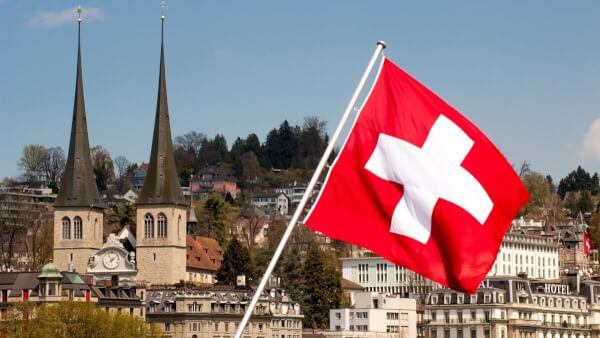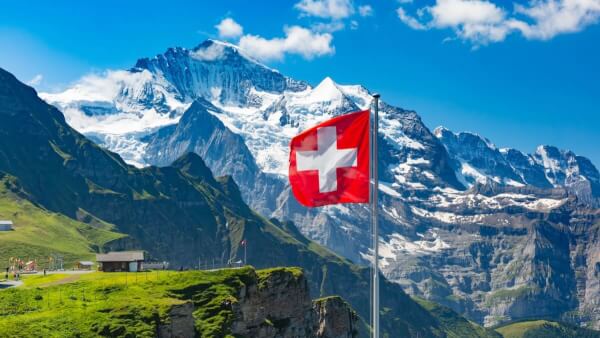Inheritance tax in Switzerland: What you need to know
Discover everything you need to know about inheritance tax in Switzerland. Our comprehensive guide covers the rates, who pays, how to calculate, and much more.

Whether you’re a Brit, Australian, or an American, you’re sure to be enchanted by Europe’s small Alpine jewel. Switzerland has much to offer expat retirees: old world European charm, mountain vistas, and modern class. As one of the richest countries on the continent, with one of highest standards of living, Switzerland isn't the retirement option for those on a modest pension. But if you can afford it, this clean, safe, multicultural nation offers the perfect blend of cozy, cultured, and chic.
Though nestled in the heart of Western Europe, Switzerland isn't a member of the EU and does not use the Euro as its unit of currency. Instead, it uses the Swiss Franc. Currently, as of mid-year 2017, the Franc trades for the following amounts.
To give you a sense of the cost of living in Switzerland, the following table lists the prices for several common goods and services for Zurich, the largest and most expensive city in the country, Bern, the medieval-style capital, and the small, more affordable northern town of Olten.
| Zurich | Bern | Olten | |
|---|---|---|---|
| Rent (one-bedroom apartment in city center) | 1,470 Fr. | 1,200 Fr. | 630 Fr. |
| Rent (three-bedroom apartment in city center) | 2,800 Fr. | 2,362 Fr. | 1,800 Fr. |
| Utilities (for 915 sq ft apartment) | 176 Fr. | 100 Fr. | 183 Fr. |
| Price per square meter (apartment in city center) | 1,300 Fr. | 1,091 Fr. | 697 Fr. |
| Internet | 51 Fr. | 42 Fr. | 50 Fr. |
| Milk | 1.57 Fr. | 4.87 Fr. | 5.68 Fr. |
| Meal for two (mid-range restaurant) | 100 Fr. | 100 Fr. | 100 Fr. |
| Gas (one liter) | 1.52 Fr. | 5.50 Fr. | 5.60 Fr. |
| Bottle of wine (mid-range) | 12.50 Fr. | 15 Fr. | 13 Fr. |
| Car (Toyota Corolla) | 25,280 Fr. | 22,000 Fr. | 24,500 Fr. |
| One-way ticket (city transit) | 3.20 Fr. | 4.40 Fr. | 4.00 Fr. |
| One pair of jeans (mid-range) | 117 Fr. | 111 Fr. | 120 Fr. |
Source: Numbeo.com
If you need to transfer money to Switzerland or even back home, you’ll want to be aware of the fees and exchange rates charged by different financial institutions. Most banks and transfer services charge low up-front fees, but take advantage of you by using a inflated exchange rate and skimming the difference.
To transfer money and have the largest amount left over when you collect it, give Wise a try. That way, your money will be converted at the real exchange rate - the same one you’ll find on Google - and that should put more money back in your pocket.
As the country’s business powerhouse, Zurich is also the hub for culture, arts, food, and nightlife. Seniors who are interested in the arts and architecture can spend their time strolling through the old neighborhoods and visiting the many museums and art galleries. Zurich, consistently ranks highly, in quality of life rankings. Though rent in the center city is sky-high, Zurich’s compactness makes it easy to live in the country just outside the city and take transit in when you want.
For a classic, old world European feel, consider settling in Switzerland’s capital, Bern. The smaller city’s red-roofed center is so well-preserved it has been made a UNESCO world heritage site. Bern has a slower pace of life than the larger cities of Zurich and Geneva, and is also more picturesque. Lying in the center of the country, between the French- and German-speaking sections, Bern also is a great launchpad for sightseeing excursions, with plateaus to the west of town and the Alps to the east.
If you’re hankering for the quintessential Swiss mountain village retirement, though, you can do no better than Gimmelwald. Though Switzerland has an abundance of quaint hamlets facing breathtaking mountains and pristine lakes, Gimmelwald is a fully pedestrianized city. There’s no driving allowed in town, making it the perfect refuge from bustling, noisy, urban life.
Whether you can afford to retire to Switzerland depends largely on what life you want. As an expensive country with compact, in-demand cities, it may not be possible to live cheaply while occupying an apartment in the center city. If you have a modest salary coming in from your passive income, though, you can likely afford an apartment in a smaller town, or out in the country.
To retire comfortably or buy property in Switzerland, you probably want to at least have several hundred thousand dollars in savings, and an income close to six figures.
EU citizens don’t need a visa to enter Switzerland, and can stay for up to 90 days within a six-month time frame without authorization. After that, EU citizens over 55 must register with the migration office of the canton they choose to settle in. As long as you can demonstrate that you have enough financial resources (pension, social security, 401(k), or real estate of stock investments) to prevent you from becoming a burden to the state, and a health insurance policy that includes accident coverage, you can obtain a residence permit that lasts for up to five years.
US and Australian citizens over 55 must apply for a visa at the Swiss consulate in their home country, as well as demonstrate adequate financial resources to support themselves and maintain an insurance policy that includes accident coverage.
Even if all of your income comes from abroad, you'll still need to file an annual tax return with Switzerland if you live there more than six months out of the year. When they file their taxes, expats may be required to complete additional filings and be subject to specific reporting requirements. Taxation regulations vary between countries, so consult an accountant for advice on how to remain tax compliant back home and in your new country.
Switzerlan is a high-altitude country, and as such has cold, snowy winters and mild summers. The average summer temperature in Zurich is 19°C (65°F) and the average winter temperature is 0°C (32°F). August is both the sunniest month (7 hours) and wettest (120mm of rain).
Swiss culture is known for its watches, chocolate, banks, cheese, and, of course, cuckoo clocks. As an Alpine nation, winter sports like skiing, ice skating, and snowboarding are popular pastimes. Shopping is also popular in Switzerland, especially along Zurich’s famed Bahnhofstrasse, a street that features some of the country’s finest jeweler’s and watchmaker’s, as well as other luxury retailers.
The Swiss have a reputation for being friendly but reserved, and like their famous clocks, Swiss life prizes order. You may find that there are many unwritten social rules that everyone is expected to know, so adapting to the Swiss way of life may be bumpy at first. For example, even though you’re new in a neighborhood, you’re still expected to make the first move. This isn't done out of rudeness, but a sense of courtesy for your privacy. As they’re getting to know each other, the Swiss often greet each other with handshakes and address each other formally, and get more informal as they spent more time together.
The Swiss tend to be industrious and private, and swiss social life is often organized around the family and tight social groups. As a whole, they’re welcoming and friendly, but since a lot of expatriates move through the country, they tend to wait to make strong bonds. If you’re there to stay, though, you can expect to make lifelong friendships.
With rich food and wine, storybook villages, modern cities, caring people, and snow-capped peaks: Switzerland is a prize waiting for any retiree who wants to claim it.
*Please see terms of use and product availability for your region or visit Wise fees and pricing for the most up to date pricing and fee information.
This publication is provided for general information purposes and does not constitute legal, tax or other professional advice from Wise Payments Limited or its subsidiaries and its affiliates, and it is not intended as a substitute for obtaining advice from a financial advisor or any other professional.
We make no representations, warranties or guarantees, whether expressed or implied, that the content in the publication is accurate, complete or up to date.

Discover everything you need to know about inheritance tax in Switzerland. Our comprehensive guide covers the rates, who pays, how to calculate, and much more.

Find out everything you need to know about Switzerland RSU tax here in our essential guide, including current tax rates.

Read our helpful guide on how to transfer a UK pension to Switzerland, including the steps, fees and taxes involved.

The complete guide to buying property in Switzerland as a foreigner. Read about how to buy Swiss property, average prices, fees, and more.

Everything you need to know about moving to Switzerland from the UK. Read about visas, popular expat destinations, healthcare and more.

Switzerland offers many perks for anyone moving there from the UK. But, there are also some downsides to look out for. Read on to learn more about both sides.